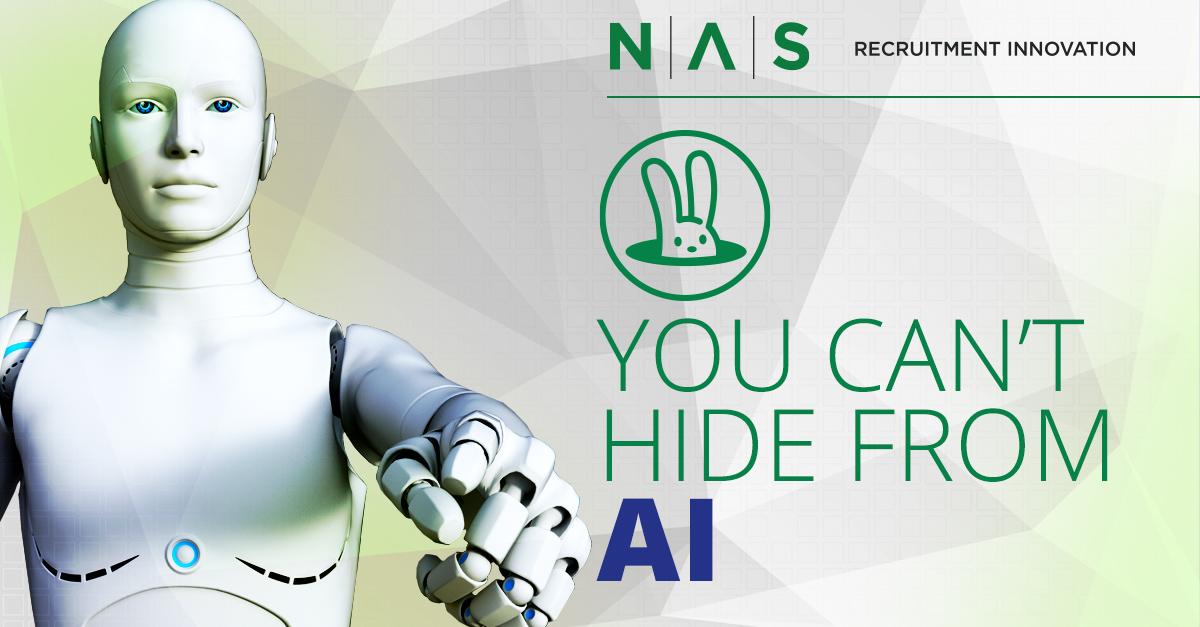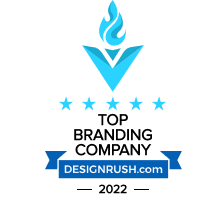-
You can’t hide from AI
Posted by Maggie Lyall on May 8th, 2019 
Where Does AI Fit in the Recruitment Process?
Manually screening resumes. Answering basic questions. Scheduling interviews. These are all tasks that busy HR professionals would be happy to hand over to someone else, even if that someone isn’t a person at all.
Welcome, AI!
According to ideal.com, this emerging facet of HR technology is designed to reduce—or even remove—those time-consuming activities that back up the hiring process by as long as several months. And accurately screening resumes is a crucial step, since identifying the right candidates in a sea of resumes is often an overwhelming and time-consuming job.
But that’s just the beginning. Not only does Artificial Intelligence (AI) significantly cut down the time it takes to find quality people, it reduces human bias (also known as the “gut feelings” of the hiring manager). Some thoughts you don’t want to cross your mind, but could…Is the applicant a graduate of your college? Bonus points for her! Did he belong to your fraternity? Must be a great guy! You get the picture.
Copy that Keeps Evolving
We may not even realize it, but job descriptions include many hidden biases of their own. Companies like Textio and others are putting an end to all of that. This computer-assisted augmented writing software lets you know which words are more appealing, which phrases and sentences will get the desired effect you want and more. It can even learn which wording generated the best response and update copy based on results.
Currently, augmented writing is optimized for recruitment writing—job descriptions and outbound mail—but the company predicts that in a few years, everything we write will be using augmented writing software. Can we say, “Wow.”
What’s Good for the Recruiter…
While AI is good for recruiters, it can also be good for candidates. Chatbots, for example, are making an appearance on employer websites and can answer basic questions around-the-clock that a job seeker may have outside of office hours. They can handle many aspects of finding, interviewing, hiring, and onboarding new employees that would normally monopolize most of a recruiter’s time. Even better, they can be customized to have their own unique personality and help your company present a unified employer brand and messaging.
Take our client, LongHorn Steakhouse, for example. They’ve been using Olivia, an onscreen virtual job assistant, for several months now. Created by Paradox, Olivia invites candidates to ask her anything about LongHorn’s business, culture, team and more, providing them with general information.
Current employees can benefit from chatbots, too. Whether they use them to book meeting rooms or ask basic questions about company policies, vacation days, etc., they can quickly get the answers they need, while human resources remains free to handle more complex issues.
We Have a Prediction
Using predictive analytics in the recruitment process is gaining more and more popularity. And AI has a hand in that as well. Now, employers often work with ground-breaking companies that use sophisticated algorithms to assess candidates’ skill sets and determine their suitability for open positions. Using predictive analytics in the recruitment process is gaining more and more popularity.
A good example of this takes place when a company chooses to conduct video interviews. While candidates are busy answering questions, AI is watching their face, judging their level of honesty, assessing their emotions and determining their personality traits. These findings often predict if candidates will say yes to a job offer, if they will succeed in a role and if they’ll be likely to stay with the company long-term.
But on the Other Hand
In a recent webinar by WayUp and Brazen, it was reported that 87% of 18-25 yr. olds surveyed prefer a phone interview with a person over one in which they video record their responses and have no human interaction. That’s a pretty high number, considering Millennials and Gen Z have practically been raised on technology. Other findings from this group: 73% are uncomfortable with AI being the sole determiner of their interview performance and only 2% are comfortable with AI being the sole determiner of their job application. The takeaway? AI/technology should augment the human touch, not replace human interaction or make hiring decisions.
How Much AI is Too Much?
So while AI is definitely making its presence known in the recruitment space, real live people are the ones who are going to have to make the call as to how much is too much and when the technology starts to alienate potential candidates. While AI can definitely save time and automate many of an HR professional’s tasks, it’s only as good as the programmer (with all of his or her individual biases) who programmed it. But one thing we know for certain: AI is here to stay.
Maggie Lyall
With an extensive background in both general and recruitment advertising, Maggie Lyall has worked on employment branding and career sites for numerous NAS clients. She has a degree from Miami University in Oxford, Ohio.

